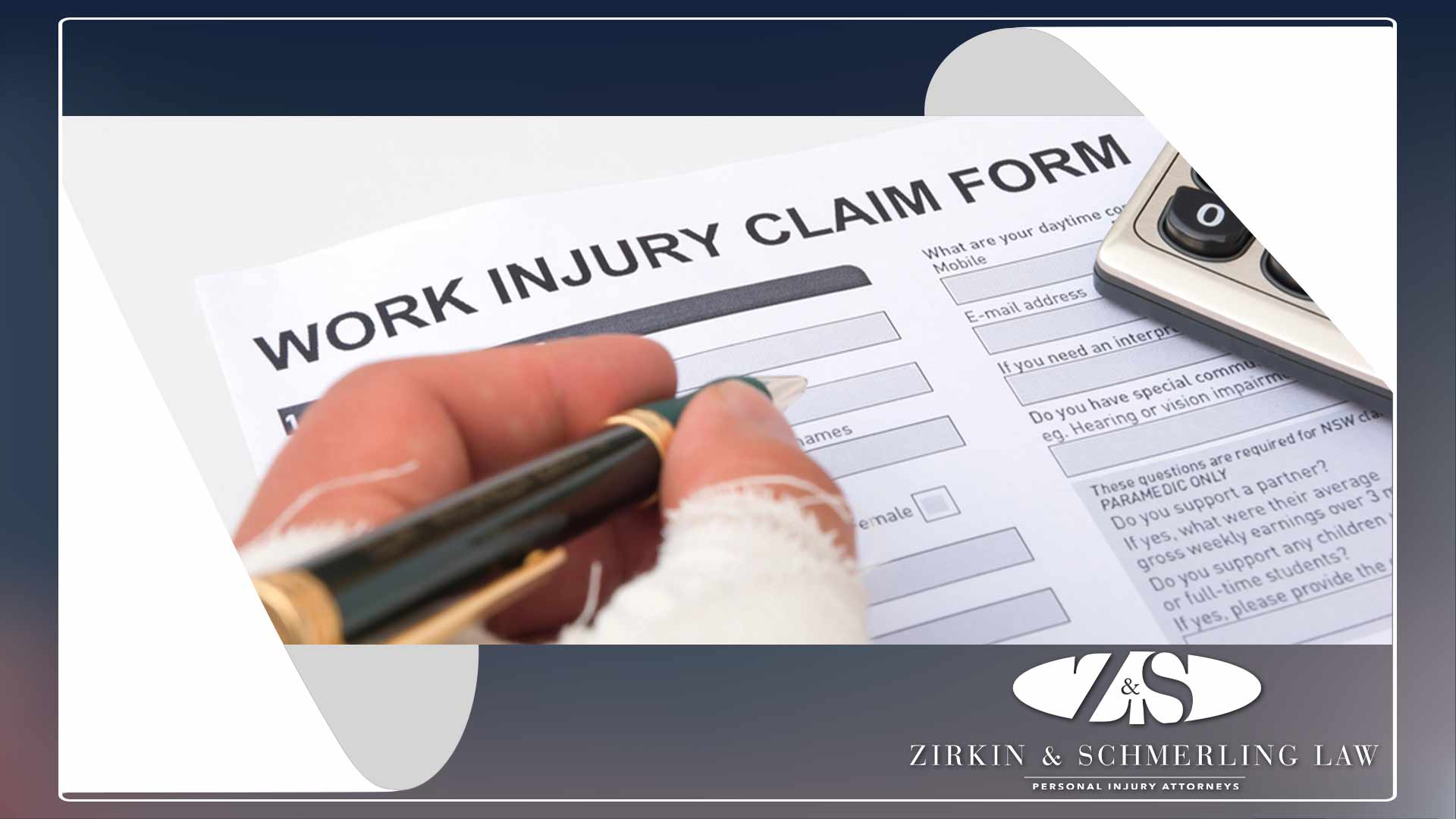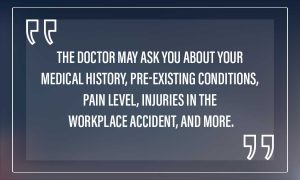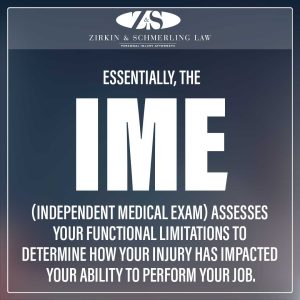
Securing workers’ compensation requires you to follow the right steps in the legal process. This includes gathering the medical evidence needed to support the claim. So, what medical evidence is needed in workers’ compensation cases?
A doctor’s evaluation is a key piece of evidence. Their perspective on your illness or injuries, medical history, and necessary course of treatment will play an important role.
What Is a Workers’ Compensation Claim?

Workers’ compensation is part of the employer’s accident insurance. It’s available to most U.S. workers through a government-mandated program. This compensation helps an ill or injured worker during the critical period after becoming too sick or injured to continue working.
Wage replacement and medical coverage are the two main benefits of workers’ compensation. The wage replacement benefit provides a percentage of your normal wages to help you pay your bills and stay financially stable during your recovery period. Medical coverage addresses your medical care and expenses.
By filing a workers’ compensation claim, you make an amicable arrangement with your employer at no cost to you. This allows the focus to remain on recovering and getting back to work as soon as possible.
What Medical Evidence Is Needed in Workers’ Compensation Cases?

Medical evidence establishes the timing and nature of your injuries, laying the groundwork for your workers’ compensation claim. You may visit your usual doctor or see a healthcare professional recommended by someone involved in the process.
Sometimes, employers or insurance providers request an independent medical exam (IME) from an alternate healthcare provider. They may suspect your injuries are not as severe as you claim or are seeking a way to deny responsibility.
Generally speaking, workers’ compensation claims require extensive medical evidence including a comprehensive medical evaluation. The doctor may ask you about your medical history, pre-existing conditions, pain level, injuries in the workplace accident, and more.
Examples of medical evidence include:
- Hospital or emergency treatment records
- Scans like X-rays and MRIs
- Results of blood work
- Specialists’ reports
- A doctor’s diagnosis
- A treatment plan
Other key documents may also be involved in your claim, like a workplace accident report, statements from witnesses to the accident, and materials showing the employer’s safety protocols. Your pay stubs and timekeeping documentation will also provide valuable evidence for the wage replacement portion of your claim.
What Happens During a Medical Exam for Workers’ Compensation?
When evaluating your injuries, the doctor will typically start by reviewing your medical history and records. They may ask detailed questions about prior injuries and illnesses, in addition to the accident involved in your workers’ compensation claim.

Answer the doctor’s questions truthfully and straightforwardly. Avoid downplaying your pain or injuries, but don’t go over the top and embellish your suffering. Accuracy is important in workers’ compensation claims.
Before leaving the doctor’s appointment, go back over your diagnosis and any treatments the doctor is prescribing. Ensure you understand what’s happening to prevent inconsistencies from arising later.
You are usually permitted to have someone with you during a medical evaluation if you wish. It can be helpful to have a trusted family member or friend taking notes and providing the emotional support you need during this time.
Can I Improve My Odds of Receiving Workers’ Compensation?
Strong medical evidence gives you the best chance of receiving workers’ compensation for your injuries.
Here are some tips for what to say and what not to say during your medical appointment:
Things to Do at Your Medical Evaluation
- Arrive on time and be polite during your evaluation.
- Answer questions honestly, including questions about previous injuries.
- Provide details about the full extent of your current injuries.
- Ask for clarification about anything you don’t understand.
- Get any additional scans or screenings the doctor recommends.
- Save copies of all of your paperwork and records.
Things to Avoid at Your Medical Evaluation
- Don’t exaggerate your injuries or appear deceptive.
- Don’t argue with the doctor or become combative during the exam.
- Don’t ignore your doctor’s orders for treatment.
After your medical evaluation, your records will become a valuable part of your workers’ compensation claim. The doctor’s analysis and recommendations will help you secure the compensation you need for your medical bills, treatment, and recovery period.
What Medical Evidence Is Needed in Workers’ Compensation Cases? Ask Zirkin & Schmerling Law
A workplace injury shouldn’t ruin your life. Workers’ compensation provides a lifeline during this challenging time.
Ensure you receive the full benefits you deserve with the help of a qualified Maryland workers’ compensation lawyer. The team at Zirkin & Schmerling Law has the compassion and experience it takes to support injured employees during the workers’ compensation process.
Contact us online or call (410) 753-4611 to set up an appointment today to discuss your workplace injury and secure the compensation you deserve.
